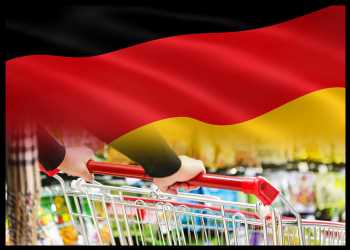Germany Enters Recession In Q1
German economy entered a technical recession in the first quarter of this year as household consumption slumped amid the rising cost of living that is fueled by high inflation, revised data from the statistical office Destatis showed Thursday.
Gross domestic product declined a seasonally and calendar adjusted 0.3 percent from the fourth quarter of last year, when the economy shrunk 0.5 percent. The initial reading was nil growth.
“After growth entered negative territory at the end of 2022, the German economy has now recorded two consecutive negative quarters,” Destatis President Ruth Brand said.
Two consecutive quarters of output contraction is defined as a technical recession.
High inflation continued to be a burden on the biggest euro area economy and mainly hurt household spending, Destatis said.
Household consumption shrunk 1.2 percent sequentially as consumers spend less on food and beverages, clothing and footwear, and on furnishings.
Demand for new cars was also less due to the discontinuation of grants for plug-in hybrids and the reduction of grants for electric vehicles at the start of 2023.
State spending decreased 4.9 percent.
Investments grew in the first quarter led by a 3.9 percent gain in construction, thanks to the good weather. Gross fixed capital formation in machinery and equipment rose 3.2 percent.
Exports grew 0.4 percent underpinned by the robust increase in shipments of plastics and fabricated metal products.
However, imports decreased 0.9 percent, partly due to reduced imports of mineral fuels such as crude oil and mineral oil products, and chemicals and chemical products.
On a year-on-year basis, GDP shrunk 0.2 percent, reversing a similar size growth from the previous three months.
Source: Read Full Article

